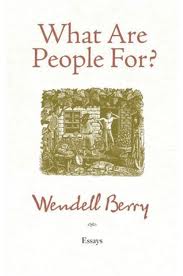Dysfunction in the workplace
Kevin Moss | 22:15, 2nd June 2013
 As I marshall my thoughts, I'm reading Tim Keller's excellent little volume, 'Every Good Endeavour'. Keller's real gift lies in bringing together ideas and resources from such a wide range of sources, and presenting key principles so clearly and simply.
As I marshall my thoughts, I'm reading Tim Keller's excellent little volume, 'Every Good Endeavour'. Keller's real gift lies in bringing together ideas and resources from such a wide range of sources, and presenting key principles so clearly and simply.
Inevitably, as one's mind runs along a particular set of tracks, in the process of preparation, one encounters examples of precisely the kinds of principle that Keller outlines in his book. Hence, in the Telegraph Magazine of 18th May, there's a feature on the surgeon, and fiction author, Gabriel Weston. In discussing her pull away from NHS work, the article includes this significant gem:
She thinks the NHS has become too defensive and management-led, and she tires of all the bureaucracy, such as 40-page appraisal forms. 'Nothing in those forms is actually about someone watching you being a doctor and seeing if you're any good; it's about whether you're up to date on equality and diversity and if you've done level 2 child-protection. It's just bulls**t, because if you're a bigot it doesn't matter if you've passed equality and diversity; you're still a bigot. If I was working full-time in the NHS now I would be going out of my mind.'
I know plenty of healthcare professionals who would echo 'Amen' to that kind of statement – indeed, exactly the same kind of deadening compliance culture now afflicts almost every area of the workplace, irrespective of where you work, or how far up the greasy pole you've climbed. The sad, almost frightening thing is that this kind of discovery is not a new thing at all. Dorothy L. Sayers, writing in 1949 ('Creed or Chaos?') says,
"Doctors practice medicine not primarily to relieve suffering, but to make a living – the cure of the patient is something that happens on the way. Lawyers accept briefs not because they have a passion for justice, but because the law is the profession which enables them to live."
Of course, these are generalisations, and no doubt there will be the inevitable exceptions – but I think the broad principle is pertinent. When work is seen 'merely' (or even primarily) as a means to an end – weekends, holidays, and all the enjoyable stuff that is not, by definition, 'work', then it may so quickly degenerate into processes, procedures, rules, rulebooks and compliance. It is significant that this kind of culture comes from an ideology which is utterly antithetic to Christian belief – an ideology which does not view human beings as unique individuals, created in the image of God, but rather merely as ‘bricks in the wall’ (thank you, Roger Waters), or cogs in a larger machine that churns and grinds without any real ultimate purpose. And so, patients are shoehorned into diagnostic processes, in the same way that nurses are shoehorned into management processes.
It is intriguing to encounter an article by Mark Addis (Birmingham City University Professor of Philosophy) in the March/April 2013 edition of Philosophy Now, entitled 'Philosophy in the Workplace'. Addis, rightly, sees a place for philosophy to engage with what goes on in the workplace – yet it is significant that the one 'osophy'which increasingly is becoming outlawed from that context is Christian belief itself, driven underground by the precious, self-protective humanism which now dominates the civic arena. Secularism shackles human beings to be drudges, slaves to the machine, whereas Christian theology shows that we discover our true identity and self-worth outside of the arena of labour, competition and compliance, through new life in Christ.
"Good work finds the way between pride and despair…It graces with health. It heals with grace…It preserves the given so that it remains a gift…By it, we lose loneliness: we clasp the hands of those who go before us, and the hands of those who come after us; we enter the little circle of each other’s arms, and the larger circle of lovers whose hands are joined in a dance, and the larger circle of all creatures, passing in and out of life, who move also in a dance, to a music so subtle and vast that no ear hears it except in fragments."
(Wendell Berry, 'What Are People For?')
Document Actions

